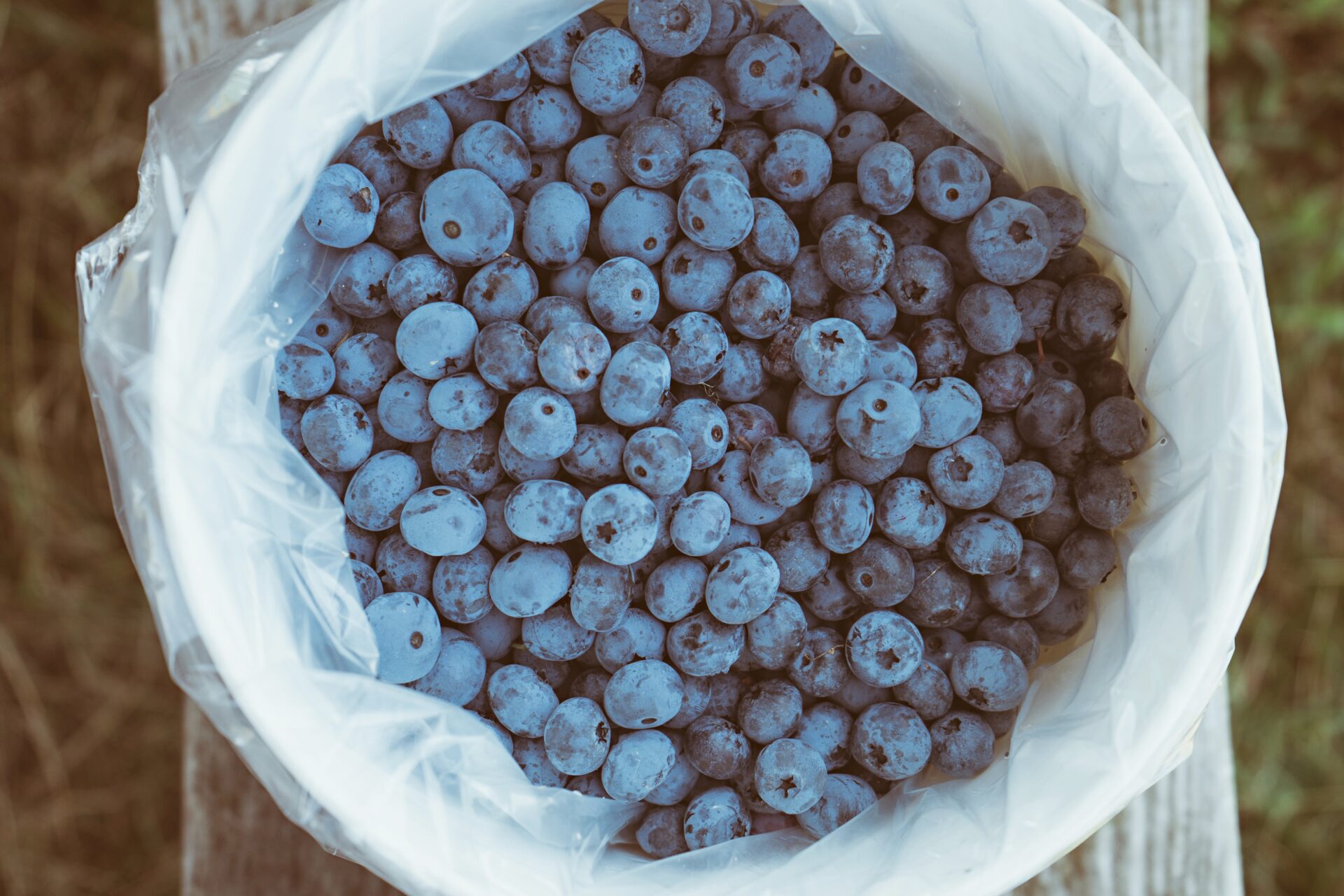Mushy blueberries are a common sight in supermarkets and farms across the world. But is it safe to eat them? The short answer is yes, mushy blueberries are safe to eat. However, there are a few things you should know about them before consuming them. In this article, we’ll take a look at why it’s okay to eat mushy blueberries and how to make sure they are still safe before eating.Yes, mushy blueberries are safe to eat. They may not look as appealing as fresh blueberries, but they are still safe to consume. Be sure to discard any that have an off smell or taste.
What Causes Mushy Blueberries?
Blueberries are one of the most popular and delicious fruits, but they can become mushy if not handled correctly. The main causes of mushy blueberries are improper storage, over-ripening, and damage from handling. Improper storage is one of the primary reasons why blueberries become mushy. When stored in warm temperatures or in an area with high humidity, the blueberries will become soft and mushy. Over-ripening is another major cause of mushiness in blueberries. If left on the bush for too long, or harvested when they are too ripe, the berries will be softer than normal. Lastly, mishandling while harvesting or transporting can cause bruising on the fruit, which leads to softness and early spoilage.
To prevent mushiness in blueberries, it is important to store them properly and harvest them at the right time. Store them in a cool place with good air circulation and keep them away from sources of heat and humidity. Check for signs of over-ripeness before harvesting and handle with care to avoid bruising or damage to the fruit. With proper care, you can enjoy fresh and delicious blueberries all season long!
Are Mushy Blueberries Edible?
Yes, mushy blueberries are generally safe to eat. Although they may not look as appealing, they are usually just as nutritious and flavorful as firmer blueberries. The texture may be different, but the taste should be the same. While some people prefer to eat only firm berries, mushy ones can still make a great addition to a variety of dishes.
Mushy blueberries can be used in baking recipes such as muffins and cakes. They can also be added to salads or mixed into yogurt for a healthy snack. They can also be cooked down into a sauce or jam for spreading on toast or over ice cream. The options are endless when it comes to incorporating mushy blueberries into your diet.
It is important to note that any blueberry that is starting to spoil should not be consumed. If the berries have mold on them or an off smell they should not be eaten. It is also important to wash all berries before eating regardless of how firm they are so any bacteria is removed from the skin.
Overall, mushy blueberries are edible and can make an excellent addition to many dishes both sweet and savory. They may not look as appealing but they will still provide you with all the same nutritional benefits as firmer berries. As long as you check for spoilage and make sure they are washed properly, you can enjoy these delicious treats with ease!
How to Tell When a Blueberry is Ripe?
Knowing when blueberries are ripe is important for getting the most out of your blueberry picking experience. Fortunately, there are a few easy tips and tricks that you can use to determine whether or not a blueberry is ripe and ready for picking.
The most important thing to look for when assessing ripeness is the color of the blueberry. A ripe blueberry should be a deep, rich blue with a hint of purple. If the berry is still green or yellow, it is not yet ripe and should be left on the bush.
Another indicator of ripeness is size; ripe blueberries will usually be larger than their unripe counterparts. Gently touch the berry with your finger to see if it gives slightly; if so, it’s probably ripe and ready for picking.
Finally, you can also tell when a blueberry is ripe by its aroma; simply hold your nose close to the berry and take a sniff! If you can detect a sweet aroma, then it is likely that the berry has reached its peak ripeness.
By using these tips and tricks you should have no trouble determining when a blueberry is ripe and ready for picking! Enjoy your delicious bounty!
Does Consuming Mushy Blueberries Pose a Risk?
Consuming mushy blueberries can pose a risk, depending on the cause of the berries becoming mushy. If the blueberries are mushy due to spoilage, then there is a risk of foodborne illness from consuming them. If the blueberries are mushy due to a lack of proper refrigeration or handling, then they may contain bacteria or other contaminants that could also lead to foodborne illness.
In addition, if the blueberries are overly ripe and have started to ferment, then consuming them could potentially cause alcohol intoxication. This is because fermentation produces ethanol, which is a type of alcohol. Therefore, it is important to be aware of how long the blueberries have been stored and their condition before consuming them.
Finally, if you are not sure about why the blueberries have become mushy or what their condition is like, it is best to discard them rather than consume them. This will help prevent any potential health risks associated with eating spoiled or contaminated food.
Overall, it is important to be aware of why the blueberries have become mushy and what their condition is like before consuming them. If you are uncertain about either one of these factors, then it is best to discard the blueberries rather than consume them in order to avoid any potential health risks associated with eating spoiled or contaminated food.

Storing Fresh Blueberries
Fresh blueberries are a delicious and healthy addition to any diet. They are great for snacking, baking, and adding to smoothies and salads. However, fresh blueberries can easily spoil if not stored properly. To ensure your blueberries stay fresh and delicious for as long as possible, follow the steps below.
First, purchase only fresh-looking blueberries with a dry surface. Avoid any berries that have signs of mold or rot. Inspect your blueberries for stems and leaves, as these can cause them to spoil faster. When you get home, remove the berries from their original packaging and spread them out on a paper towel so they can dry out more quickly.
Next, store your blueberries in an airtight container lined with paper towels at room temperature. This will help keep moisture away from the berries and prevent them from spoiling too quickly. You can also store them in the refrigerator in a sealed container lined with paper towels if you plan on using them within a few days.
Finally, make sure to use your blueberries within one week of purchase for optimal freshness and flavor. If you find yourself with too many berries that won’t be eaten within this time frame, freeze them! Spread the washed berries evenly on a parchment-lined baking sheet before freezing – this will prevent the berries from sticking together once frozen. Once frozen, transfer the berries to an airtight container or resealable bag for easy access when needed!
Is Eating Overripe Fruit Unsafe?
Eating overripe fruit can be considered unsafe depending on the type of fruit and how it was stored. Overripe fruits tend to spoil faster, which can lead to food poisoning if consumed. Fruits that have begun to rot or have a slimy texture should be avoided as they can contain harmful bacteria and fungi. Some fruits, such as bananas, may become brown when overripe but are still safe to eat if the texture is not slimy.
It is important to practice proper food safety when handling and storing overripe fruit. Fruits should be kept in the refrigerator as soon as possible after being purchased or harvested in order to slow down spoilage. If the fruit has been sitting out at room temperature for an extended period of time, it is best to throw it away instead of consuming it.
If you are unsure about the safety of an overripe fruit, it is best not to eat it. In some cases, overripe fruits may need to be discarded due to mold growth or signs of decay. Eating spoiled or moldy foods can cause food poisoning and other serious health risks. It is important to inspect all fruits before eating them and discard any that show signs of spoilage or mold growth.
Health Benefits of Eating Blueberries
Blueberries are a superfood rich in antioxidants, vitamins, and minerals that offer numerous health benefits. They are packed with polyphenols, compounds that help fight disease-causing inflammation and oxidative stress. Research suggests that eating blueberries may lower the risk of heart disease, diabetes, cancer, and other chronic diseases.
Blueberries contain high levels of fiber, which helps promote healthy digestion and regulate blood sugar levels. Eating blueberries regularly can help reduce cholesterol levels and improve gut health. Studies have shown that people who eat blueberries have lower cholesterol levels than those who don’t.
The antioxidants found in blueberries may also protect against age-related cognitive decline and improve memory function. Studies suggest that eating blueberries on a regular basis can improve your cognitive performance and memory recall. Additionally, the antioxidants found in blueberries may also help protect against cancer and reduce the risk of age-related vision loss.
Blueberries are also a great source of vitamins C and K, both of which play an important role in maintaining bone health. Vitamin C helps form collagen, a protein that strengthens bones while vitamin K helps regulate calcium absorption for stronger bones. Eating blueberries regularly can help prevent osteoporosis and other bone-related conditions.
In addition to their numerous health benefits, blueberries are also delicious and can be enjoyed as part of a healthy diet or as a snack throughout the day. Try adding them to smoothies or oatmeal for an extra boost of antioxidants or topping off yogurt with fresh or frozen berries for a tasty treat. No matter how you enjoy them, blueberries offer numerous health benefits that make them an excellent addition to any diet!

Conclusion
In conclusion, mushy blueberries are safe to eat as long as they show no signs of mold or spoilage. There are some potential drawbacks in terms of taste and texture, but these can be remedied by cooking the berries or using them in baking. If you have a large quantity of mushy blueberries, it is best to freeze them for later use. All in all, the best policy is to use your judgement and if the berries look okay, then they should be safe to eat.
Overall, mushy blueberries may not be as desirable as fresh berries, but they can still offer nutritional value and can be safely consumed. Just make sure that they don’t show any signs of being spoiled before consuming them.



